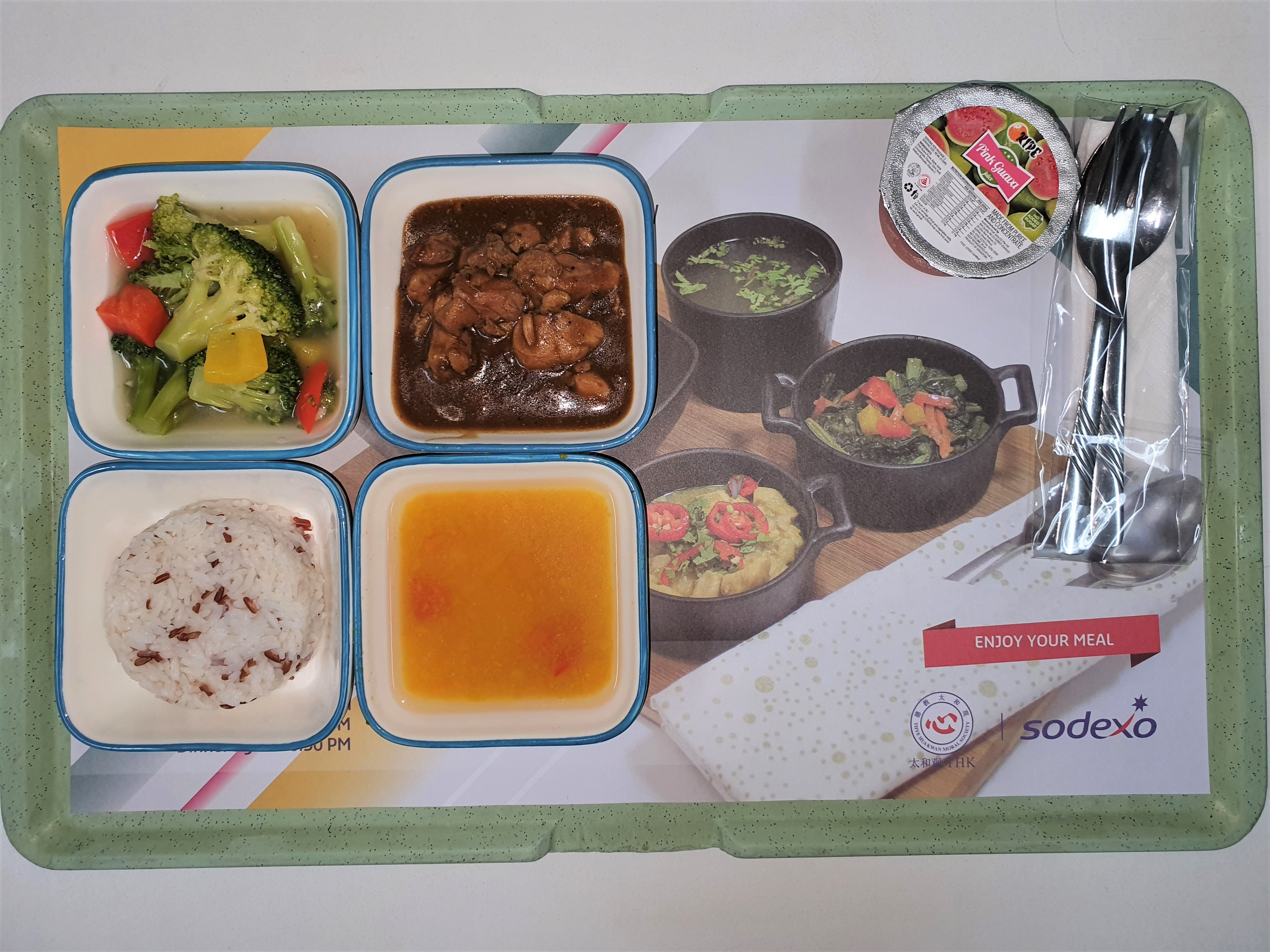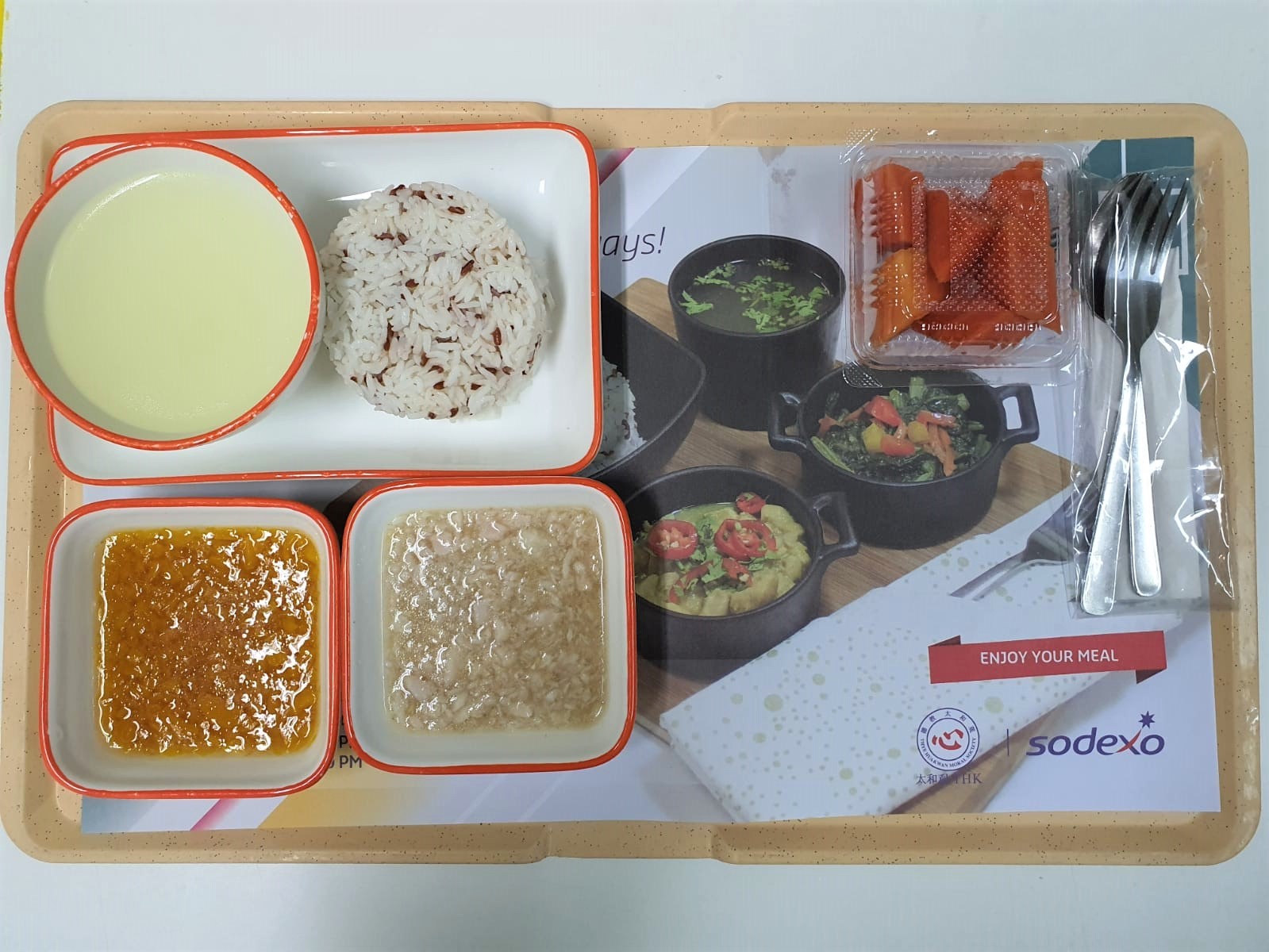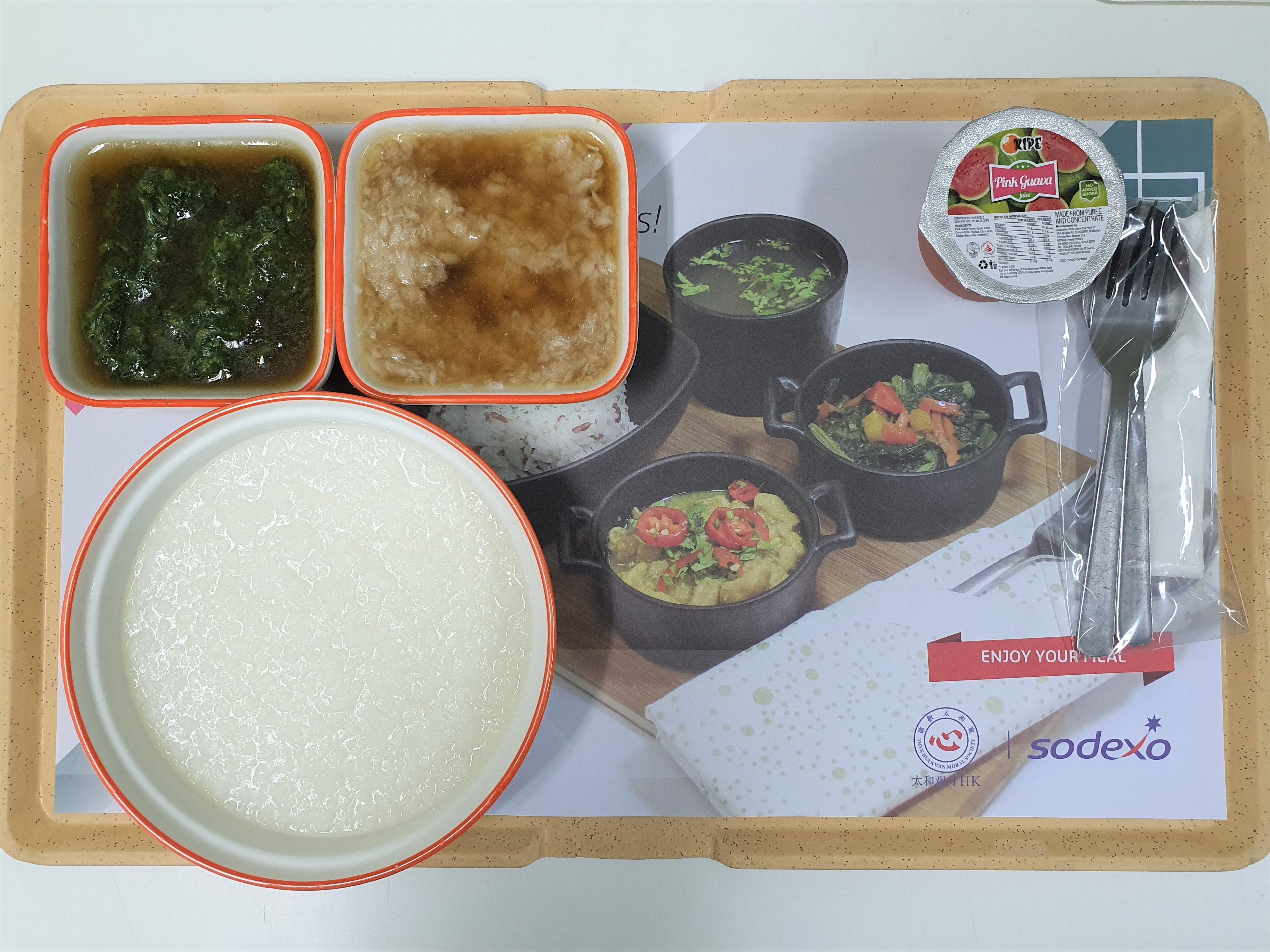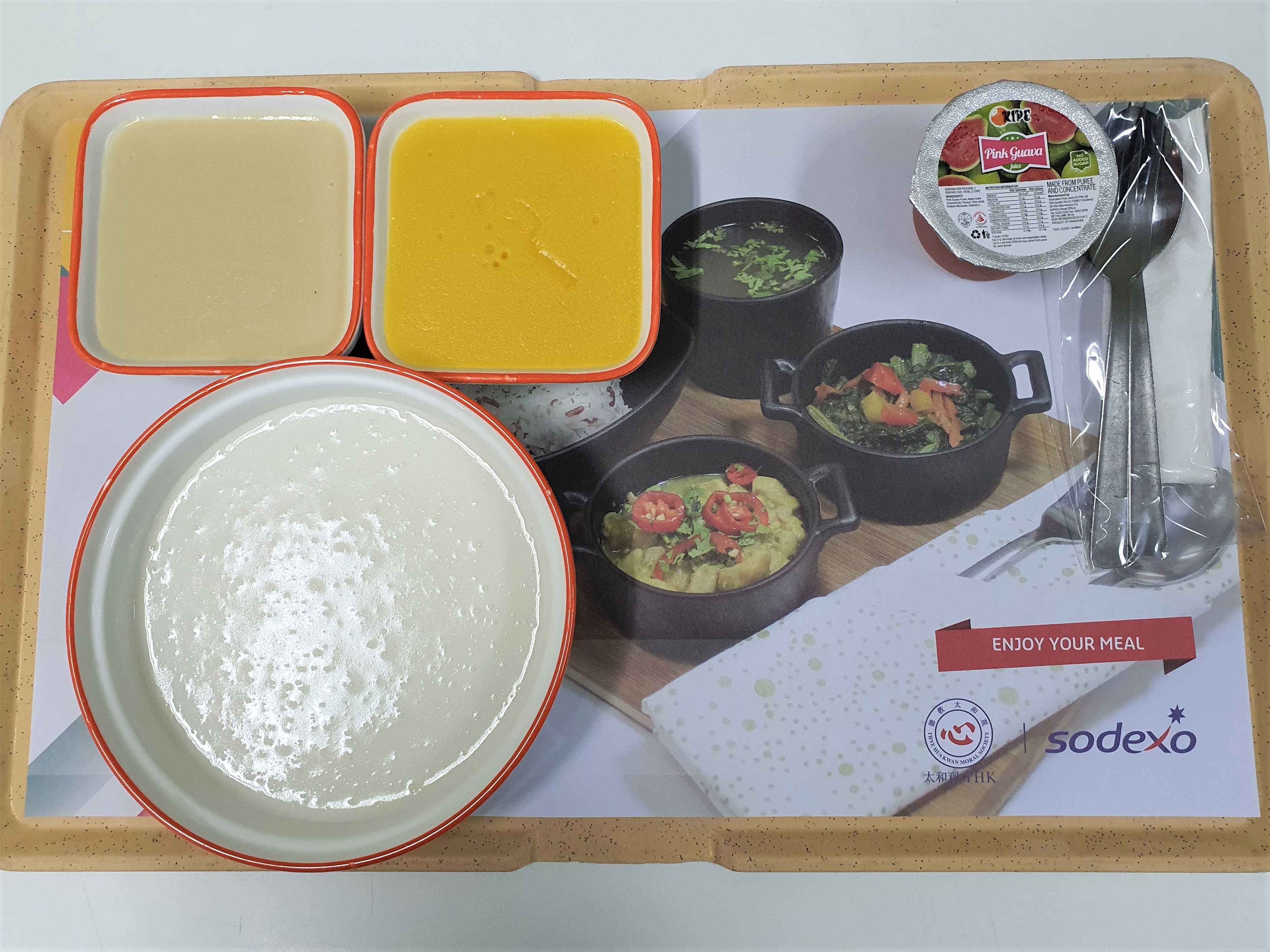How do we improve the quality of life of seniors? Learn more about how we boost the care of patients at a community hospital who have swallowing difficulties through the implementation of the IDDSI standard.
According to a study in 20161, dysphagia, the medical term for swallowing difficulties, is estimated to affect about 8% of the general population worldwide. Dysphagia can occur at any age, but it is more common in older adults.2 Dysphagia patients require special modifications to foods and drinks to reduce the risks of choking and aspiration (when food or drinks are breathed into the lungs or airway).
In Singapore, Sodexo supports the care of seniors by introducing the International Dysphagia Diet Standardisation Initiative (IDDSI) standards. The IDDSI is a systematic framework that consists of a continuum of 8 levels, with food texturized to varying levels according to the therapeutic needs of the patient. Through this global standard, we improve the quality of life and enhance the safety of patients with dysphagia and swallowing difficulties.
Sodexo’s healthcare team, consisting of dietitians, culinary experts, and food service staff, as well as the client’s speech therapists and clinical dietitians, jointly worked together to embed this into our food services at a community hospital. Starting off in September 2020, to ensure a robust implementation, the entire preparation took six months.
Our team worked on adapting the meals to incorporate a range of texture, from regular to liquidised. Firstly, the team evaluated the existing texture-modified diet menus to map them to the IDDSI criteria. Although the IDDSI standards provides international guidelines, the team also needed to adapt it to local dishes to suit the patients' palates. This was led by Sodexo’s in-house experts, Clinical Nutrition Manager, Puay Eng Koh, as well as Registered Dieticians, Hui Xin Loh and Terence Tan, with the support of Sodexo’s global healthcare specialists. They tested a variety of food items on the menu. Testing methods include applying the fork pressure test and spoon pressure test to determine safe food sizes. Considerations include the softness, tenderness, mashability, as well as moisture levels of the food items. Today, the menu includes stir-fried Chinese spinach, chicken peratal and tau si fish, amongst other local favourites.
|
Level 7 - Regular Diet
Chicken Peratal, Broccoli with Capsicum & Pumpkin Soup with Brown Rice |
Level 6 - Soft & Bite-Sized Diet
Fish in Kei Qi Sauce, Stewed Pumpkin & Clear Soup with Brown Rice |
|
Level 5 - Minced & Moist Diet
Tau Si Fish & Stir-Fried Spinach with Plain Porridge |
Level 3 - Liquidised Diet
Fish in Kei Qi Sauce & Stewed Pumpkin with Blended Porridge |
A large part of the project also involved working with the culinary team to create appropriate and innovative solutions in food preparation while ensuring that the dishes are flavourful. Discussions and trials were conducted regularly with the culinary team and client’s speech therapists to adapt to patient needs. Through this, our team was able to ensure highest degree of adherence to IDDSI standards. In the meantime, the taste profile is retained throughout this process to ensure that patients can still enjoy an appetizing meal.
Food plays a vital role in assisting patient recovery and maintaining health and well-being. With the success of this project, the IDDSI menus are now integrated in the electronic diet order system and patients with dysphagia at the community hospital are provided with nutritious, healthy, and safe meals.
1 Cichero JA, Lam P, Steele CM, Hanson B, Chen J, Dantas RO, Duivestein J, Kayashita J, Lecko C, Murray J, Pillay M, Riquelme L, Stanschus S. Development of International Terminology and Definitions for Texture-Modified Foods and Thickened Fluids Used in Dysphagia Management: The IDDSI Framework. Dysphagia. 2017 Apr;32(2):293-314. doi: 10.1007/s00455-016-9758-y. Epub 2016 Dec 2. PMID: 27913916; PMCID: PMC5380696.




